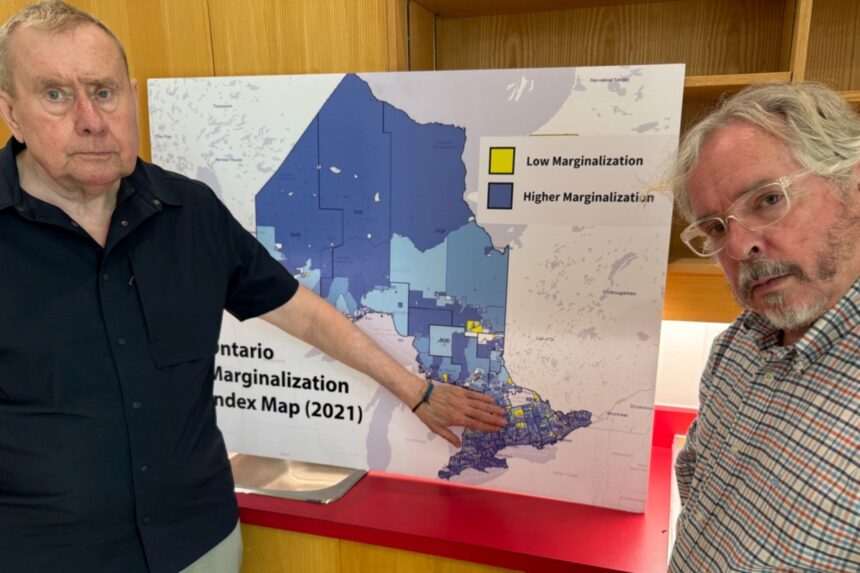As I’ve watched Toronto’s healthcare landscape evolve over the past decade, the recent warnings from CUPE Ontario about our province’s healthcare direction have struck a particularly concerning chord. The union representing thousands of healthcare workers across Ontario is raising alarm bells about what they describe as a deliberate shift toward American-style privatization in our healthcare system.
“What we’re witnessing isn’t accidental—it’s by design,” Fred Hahn, president of CUPE Ontario, stated during a media briefing earlier this week. His comments reflect growing anxiety among healthcare professionals that our public system is being systematically undermined.
The union points to several troubling indicators that suggest privatization is accelerating. Independent health facilities in Ontario have increased by nearly 35% over the last five years, according to Ministry of Health data they’ve analyzed. Meanwhile, hospital wait times continue to stretch beyond acceptable limits, creating what some describe as a perfect environment to justify private alternatives.
Walking through Toronto General Hospital last month while researching another story, I couldn’t help but notice the strain on staff faces. One nurse, speaking on condition of anonymity, told me, “We’re running ourselves ragged while private clinics cherry-pick the easiest and most profitable procedures.”
The provincial government maintains that recent healthcare initiatives are designed to reduce surgical backlogs and improve access. Health Minister Sylvia Jones has repeatedly stated that OHIP will continue covering services regardless of where procedures take place. “Ontarians will always access healthcare with their health card, not their credit card,” she noted in a recent press statement.
But healthcare economists like Dr. Raisa Deber from the University of Toronto’s Institute of Health Policy warn that the situation requires nuanced analysis. “The concern isn’t just about who pays but about how resources are allocated across the system,” she explained during our conversation last week. “Private facilities tend to focus on predictable, profitable procedures, potentially leaving more complex cases to an already strained public system.”
CUPE’s report highlights that Ontario currently spends approximately $1,500 less per person on healthcare than the Canadian provincial average. The union argues this chronic underfunding creates artificial crises that make privatization seem like the only solution.
For everyday Torontonians, these abstract policy debates translate to real-world concerns. At a community forum in Scarborough last month, I heard from residents worried about potential out-of-pocket costs and two-tier access. Maria Chen, a 68-year-old retiree, voiced what many were thinking: “If we move toward the American system, what happens to people like me who can’t afford private insurance?”
The Ontario Health Coalition, which tracks healthcare privatization, has documented increasing instances of patients being offered faster service for a fee—a direct contradiction to the principles of the Canada Health Act. “We’re seeing more clinics suggesting patients can pay to jump the queue,” explained coalition director Natalie Mehra.
Critics of privatization point to international evidence suggesting that mixed public-private systems often increase overall costs while decreasing equity. Meanwhile, proponents argue that innovative public-private partnerships could potentially address capacity issues while maintaining universal access.
As someone who’s covered Toronto’s healthcare evolution for over a decade, I find myself reflecting on how we measure success in our healthcare system. Is it purely about efficiency and wait times, or must we also consider equity, comprehensiveness, and long-term sustainability?
What’s clear is that Ontarians deserve a transparent conversation about the future of our healthcare system. The provincial government must address the legitimate concerns raised by healthcare workers and advocates rather than dismissing them as unfounded.
For now, CUPE Ontario has promised to launch a province-wide campaign to raise awareness about what they see as creeping privatization. Whether their warnings represent an accurate forecast or an overstated concern remains to be seen, but the conversation they’ve initiated is one our province urgently needs to have.
As Toronto continues growing and evolving, how we care for each other through our healthcare system remains one of our most defining challenges. The decisions made today will shape the care available to all of us tomorrow.







